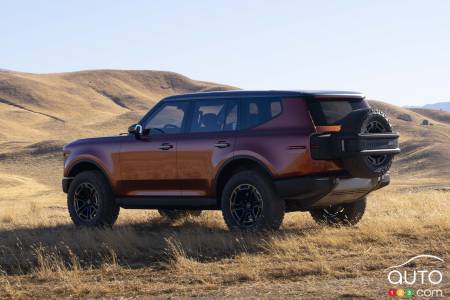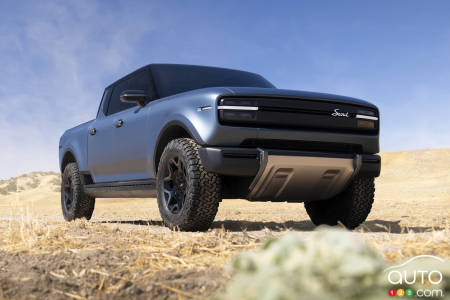Volkswagen's electric sub-brand Scout says that since it unveiled its first two models in 2024 - the Terra pickup truck and Traveler SUV – it has booked over 50,000 reservations.
Of the reservation made, 70 percent are for the SUV.

Each of the electric models will be available with two powertrain configurations: one all-electric and one with a range extender. In that system, a gas-powered motor-generator takes over to recharge the battery. This allows drivers to continue on once the drive battery's energy is depleted.
In the latter case, Scout is promising a range of 805 km (500 miles). For company CEO Scott Keogh, this approach largely explains why the vehicles are attracting so much attention.
Regarding the range extender, Keogh told Bloomberg that “this allows us to have a vehicle for all 50 states.” He told CNBC that executives were very pleased.
Volkswagen CEO Oliver Blume commented on Scout's initial success at this week's CES (Consumer Electronics Show) in Las Vegas: "The market response has been very, very positive," he said. In his view, the comeback of the name is perceived as a tribute to the brand's heritage, as a love story between it and the public.
That 70 percent of potential buyers are reserving in the extended-range version validates Scout’s strategy, it would appear. Access to a vast network of charging stations remains a challenge for many buyers in many parts of the U.S. and Canada, and eliminating that stress with a gas-engine backup is obviously appealing to some.
And given the possible policy changes in Washington in the coming months, Scout is positioning itself to be flexible in order to meet all market needs.
Volkswagen is currently building a $2 billion factory for Scout in South Carolina. Scott Keogh says it will not need major modifications to manufacture the extended-range versions.






